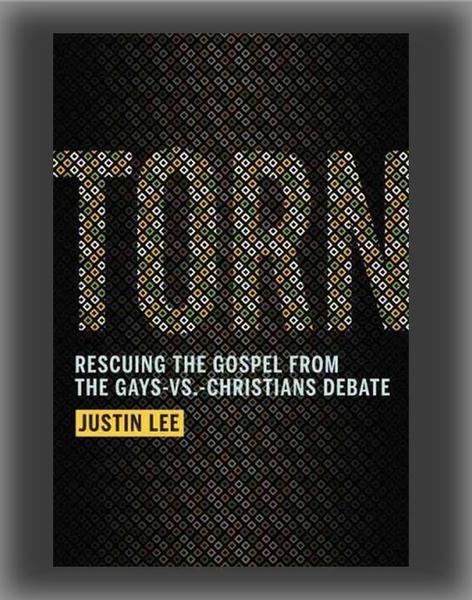“Blondes do have a certain allure, don’t they?”
It was just the kind of question a father asks if he's interested in a man-t0-man with his teenage son, or so says Justin Lee, in Torn, his memoir of growing up gay.
And yet, for the first time in my life, I felt something I couldn’t say to my dad. How could I tell him what I was really feeling, that I didn’t care that she was blonde, or what she looked like at all, that I never thought about any girls like that, but that there was a blond boy I couldn’t get out of my head—a classmate with a shy smile and cute dimples and bright green eyes? Argh! How could I even think such things about a boy?
That Justin Lee suffered greatly as a child goes without saying. Not only was he somehow inexplicably attracted to boys, his wonderful family was and is devoutly evangelical, Southern Baptist, among whom being gay is something akin to anathema. What makes Torn such a good read is that Justin Lee's story doesn't fudge on either side of the dilemma he clearly faces: he remains as deeply committed to Jesus Christ as he is to his being born with an orientation most evangelicals actually denied and self-righteously abhorred.
It would make all sorts of sense for him to cut and run from a church in which he had no place, but he doesn't; he stays and attempts to figure out--almost always on his own--how he's going to live as a gay Christian. Torn is more than a memoir; it's a textbook for those who, like Lee, find themselves unwilling or unable to renege either on their commitment to faith or their own sexual orientation. And it's a Bible study on passages that have been the standard ammunition of those who've gone to war about gay marriage.
Recently, the governing body of the Christian Reformed Church, of which I have always been a member, voted to drop Bethany Christian Services from its list of approved agencies. Bethany decided, some time ago, to open up its services to same-sex couples, a move contrary to the CRC stance on gay marriage. The vote was close, 23-21.
It is still possible to feel the whiplash from the incredible change in American culture's attitude on LBGTQ issues. When ex-President Barack Obama began his presidency, he disagreed with gay marriage, then changed that view only when it was undercut by his Vice President, Joe Biden, who admitted in an interview that he favored it. Ex-President Clinton suggested "don't ask, don't tell" in the armed services as a covert means to deal with the reality of same-sex orientation--"just don't talk about it."
Suddenly, things changed. Culture realigned itself on the issue for reasons that still have researchers scratching their heads. Being gay was no more anathema. Gay marriage became acceptable almost overnight.
But not among those evangelicals who read the Bible as if all of scripture's power originates in The Ten Commandments.
Nothing in Torn really surprised me. The biblical arguments are neither new nor totally convincing. What makes the book as interesting and readable as it is, is Justin Lee's indominable faith, his religious commitment in the face of so much withering criticism from fellow believers. He holds fast in faith, even when the church won't have him.
Torn does suffer from basic differences between story and sermon. The book is best when it's a story, but it is, finally, more of a sermon, a fine sermon, one that is needed today in certain circles, like my own, where a denomination erases an adoption agency it once birthed itself.
I would have liked to hear more of Justin Lee's story. Eventually he came to favor gay marriage. What his memoir conspicuously avoids is any mention of a lover. One can't help but believe that by avoiding sexuality--eros--and clinging to agape, he kept the book free from the most difficult area heterosexuals face in accepting gay life, the physicality of same-sex relationships. There are none in Torn. I couldn't help wondering if there are none in the life of Justin Lee. That I don't know is, I think, a weakness of the narrative.
Still, Torn is a very, very good read for those who are struggling with the issue that threatens most fellowships who claim to find their strength in the testimony of the scriptures.
And that's a lot of us.

No comments:
Post a Comment